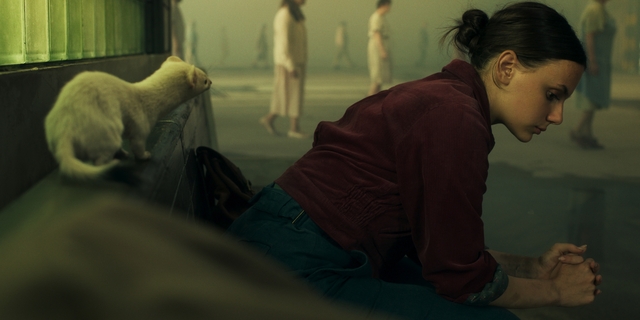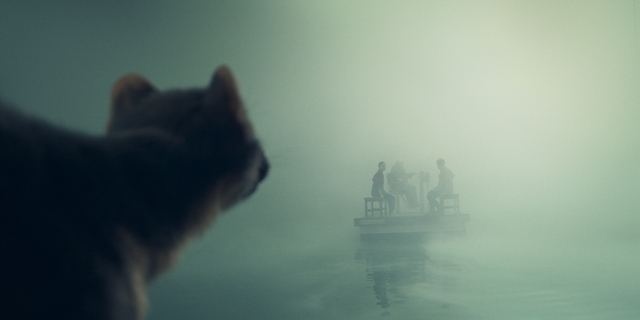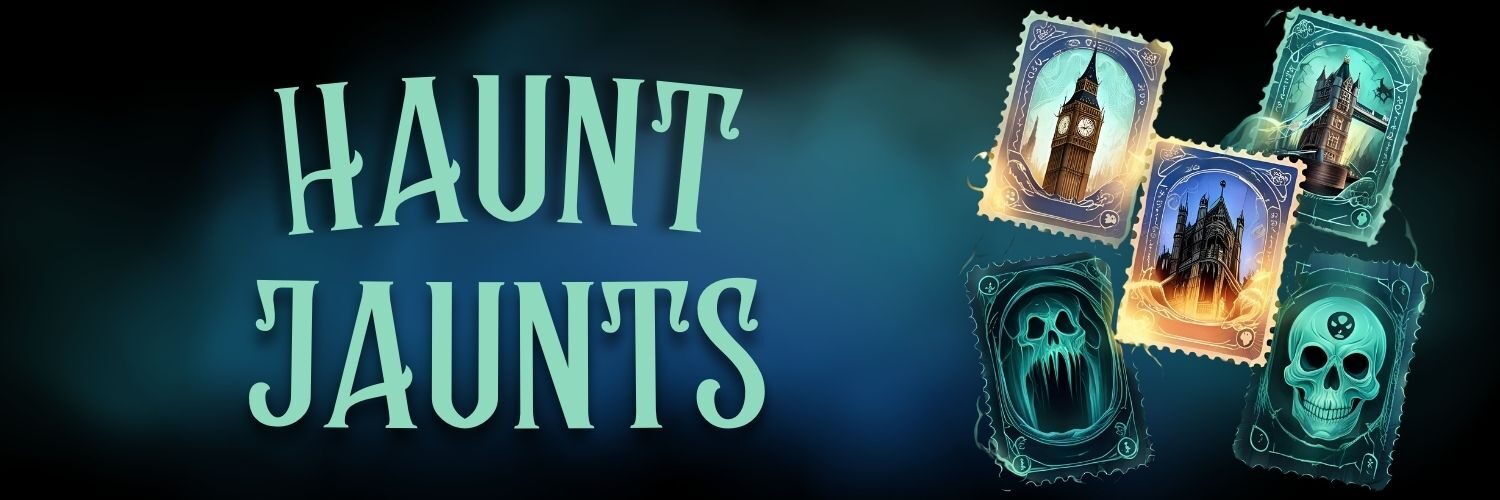
In both Philip Pullman’s His Dark Materials trilogy and the HBO Max series based on it, many of the characters have daemons. (Which is actually spelled with a ligature to form “dæmons.”) In fact, as Will (Amir Wilson) finds out, everybody has dæmons. However, in some of the worlds (like Will’s) they’re not visible (like they are in Lyra’s). But what exactly is a dæmon? And besides the spelling, is there any difference between the demons we’re more familiar with and the daemons in the trilogy?
The latter question, in particular, has haunted me since the first episode. But now that the series has come to a close, I decided to investigate. Let’s take a look.
What’s a daemon?
At first, I thought daemons were talking pets. I quickly came to realize they were more like spirit animals.
But leave it to Wikipedia to define it best. They have pages for both the His Dark Materials HBO Max series and trilogy, including a section devoted to terminology on the page about the books. Among the words they define is “dæmon,” which is pronounced the same as we say “demon.” But it doesn’t entirely represent the same construct we know it as.
In essence, a dæmon is “The animal embodiment of a human’s inner-life.” They are integrally attached to their person. If one dies, so does the other. And severing their connection, like Lyra’s mom Marisa Coulter (Ruth Wilson) does to try and understand and control “Dust,” also has dire consuquences for them both.
Daemons in His Dark Materials
Lyra Belacqua (Dafne Keene), who also becomes known as Lyra Silvertongue, is one of His Dark Materials’ central characters. So is Pantalaimon, or “Pan” as she affectionately calls him, her white ermine dæmon. However, because she’s not an adult, Pan’s species isn’t set yet. He’ll change into his forever form once Lyra becomes an adult. In a way, the series is her coming of age made visible through Pan.
We see Pan shift a few times, including into a bird or when Lyra boards the ferry in the Land of the Dead and leaves Pan on the dock. Sadly, my animal knowledge is lacking. I’m not sure what animal Pan morphs into during the heartbreaking scene when he watches Lyra sail off into the fog. He could be another form of a weasel, a badger, or some other critter. (If you know, please shout!)

Regardless of what form he will ultimately become, their bond is a thing of beauty. The epitome of what it must look like to truly be connected to yourself. It’s a wonderful, amazing relationship.
Unlike our view of demons, in which we view them as bad, malevolent, and entities from “elsewhere” that are separate from us. Technically daemons are their own forms that are physically separate from their humans. But psychically, they’re intertwined. And if a person is bad, or exhibits bad behavior, often so does their daemon. Mrs. Coulter’s golden monkey is a great example of that. He often exhibits dangerous, even lethal, behavior. But then we see his conscience shine through as he demonstrates a more benevolent, thoughtful demeanor.
In fact, in the series, we often see how daemons possess their own minds and morals and act as a voice of reason for their people. Pan often does this for Lyra. Lord Asriel (James McAvoy), Lyra’s father, benefits from the wise guidance of his snow leopard dæmon, Stelmaria. Lee Scoresby (Lin-Manuel Miranda) often receives solid and sage advice from his arctic hare dæmon, Hester.
But what about the ones we know? Are there really any differences between demons and daemons?
Daemons vs. Demons Differences
We view demons in more of a black-and-white light. Emphasis on black, as in dark of nature and therefore bad and evil. They’re not like the ones in His Dark Materials. As folklorist Victoria Jaye summed it up, “My research has yielded that demons are never friendly or helpful to humans without eventually turning on those using their demonic abilities for personal gain.”
Daemons, on the other hand, are more fluid, just like the people they represent. They predominantly want to help their humans, and hurt anyone opposed to them if need be. But that’s not their purpose, and their humans are neither always good nor bad. Some lean more one way than another, yes, but glimmers of their other side show through every now and then too.
I’d actually argue what we call demons are really more like daemons, and aren’t that different at all. They’re not visible but are always attached to us, meaning they don’t dwell in some outward realm, but, rather, within us. And since we’re taught to hide and be embarrassed or ashamed of our shadow selves, our demons are therefore repressed, misunderstood, and misrepresented. In short, they get a bad rap.
Because even though we often paint ourselves as such, we’re not one-dimensional beings. We’re neither good nor bad, pious nor evil, but a mixture of many things, including flaws. That doesn’t make us anything except real.
I’d even venture to say that some of us —heck, the majority of us— are demon whisperers who have learned to quiet the monsters within. But as with all things, some struggle to tame their demons —and in some cases, fail spectacularly at it with disastrous results.
In fact, maybe we’re actually the daemons. Rather than blaming demons when we let our “bad sides” out, maybe we’re meant to be the voice of reason that shows them a better way of behaving, being, and existing? Maybe to demons, “humans” is associated with darkness, and they debate whether we’re evil or not.
Check-In
I don’t think in the world of His Dark Materials that you necessarily get to pick what your daemon manifests as. But if you could, what daemon would you choose?
Hands down, I’d want a great blue heron.
Courtney Mroch is a globe-trotting restless spirit who’s both possessed by wanderlust and the spirit of adventure, and obsessed with true crime, horror, the paranormal, and weird days. Perhaps it has something to do with her genes? She is related to occult royalty, after all. Marie Laveau, the famous Voodoo practitioner of New Orleans, is one of her ancestors. (Yes, really! As explained here.) That could also explain her infatuation with skeletons.
Speaking of mystical, to learn how Courtney channeled her battle with cancer to conjure up this site, check out HJ’s Origin Story.

A great blue heron? That’s a beautiful choice. I’m leaning toward a salmon. They’re great swimmers and don’t seem to be bothered by the cold!
SALMON!!!! They’re such strong swimmers. Upstream! Leapers! What a fantastic choice for you! I love it!!!
Same here for the great blue heron! I’ve always considered it…I don’t know…an animal that I have a strong connection with. When I was on Pottermore a million years ago, guess what my patronus was? LOL!
GET OUT!!! Maybe it’s some kind of Virgo thing to be drawn to them???